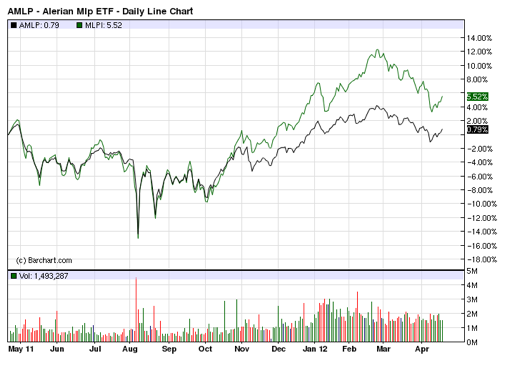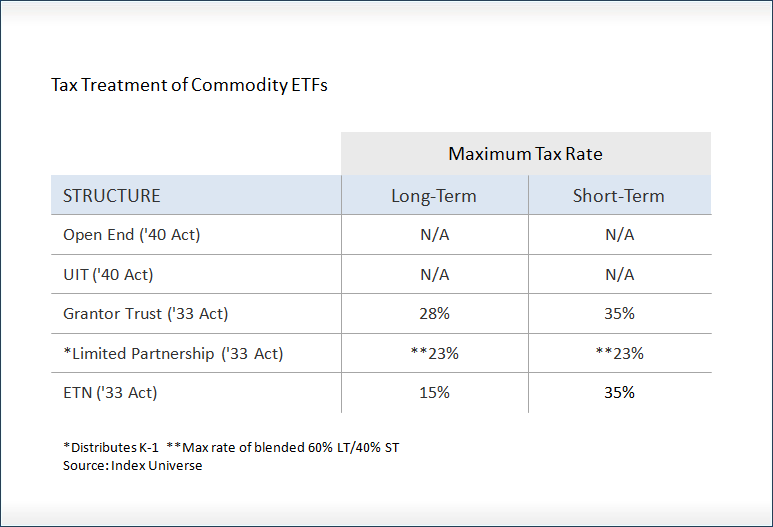For ETFs Capital Gains Distributions Remain Few And Far Between
Post on: 29 Май, 2015 No Comment

By Robert Goldsborough
Tax efficiency is one of the hallmark benefits of exchange-traded funds.
Unlike traditional open-end mutual funds, which redeem shares for cash, requiring funds to sell securities and potentially realize capital gains, most ETFs continually dodge the capital gains tax bullet by redeeming securities in kind. This allows ETF providers to swap out low-cost-basis securities without having to realize as many capital gains.
Now, the redemption process by which ETFs are able to minimize potential capital gains does not always eliminate them entirely. For example, ETFs need a decent amount of trading activity to reduce their securities’ cost basis, and not all securities can be easily traded in-kind. As a result, ETFs can and sometimes do have capital gains distributions. And of course, investors still face capital gains taxes when they sell ETFs for a gain. However, capital gains are much less frequent for ETF investors than for mutual fund investors, and some ETFs can go years and years without making a capital gains distribution.
As we approach the end of 2013, major ETF providers again are expecting relatively few funds to make capital gains distributions. Most providers now have issued estimated capital gains distributions, and the results again are impressive.
At five large ETF providers — iShares, Vanguard, State Street, PowerShares, and Schwab — just 38 out of 670 funds are facing capital gains distributions of any kind, whether long-term or short-term. And in almost every case, the distributions are very small — much less than 1% of the affected funds’ net asset value.
More Capital Gains Distributions from Bond ETFs
Bond ETFs make up the majority of the affected ETFs that are expected to issue capital gains distributions. There are several critical reasons for this. First, the bond ETF category has seen meaningful outflows this past year, which has required more selling than might otherwise have been the case. Also, equity ETF managers generally have an easier time with lower security turnover in their indexes and hiding capital gains, particularly because the index turnover often happens at the margins. Bond ETF managers, by contrast, in general see higher turnover (because most bond indexes tracked by ETFs do not hold very short-term bonds, the bonds in the ETF must be sold outright eventually).
Breakdown by Firm

The largest ETF provider, iShares, posted stellar results, with capital gains distributions on just four of the firm’s roster of 299 ETFs. PowerShares also kept capital gains distributions to a minimum, with distributions on just seven of its 159 ETFs. The numbers were higher at Vanguard, where there were distributions on eight of its 67 ETFs (all eight are bond funds). State Street saw the most capital gains distributions amongst the firms surveyed, with 19 out of its 124 ETFs slated to distribute capital gains. Finally, Schwab pitched a shutout; none of its 21 ETFs issued distributions. At the same time, Schwab is still a relatively small ETF provider, and none of its bond ETFs has more than $500 million in assets. We also assume that its ETF assets are probably a bit stickier, given Schwab’s model of focusing on core portfolio building blocks, and their relative lack of liquidity would seem to indicate they are less likely to be heavily used by traders.
Below are tables providing a look at the five largest ETFs with capital gains distributions of any kind, followed by the five ETFs from these providers with the largest capital gains distributions as a percentage of their net asset value as of December 16.
Disclosure: Morningstar, Inc. licenses its indexes to institutions for a variety of reasons, including the creation of investment products and the benchmarking of existing products. When licensing indexes for the creation or benchmarking of investment products, Morningstar receives fees that are mainly based on fund assets under management. As of Sept. 30, 2012, AlphaPro Management, BlackRock Asset Management, First Asset, First Trust, Invesco, Merrill Lynch, Northern Trust, Nuveen, and Van Eck license one or more Morningstar indexes for this purpose. These investment products are not sponsored, issued, marketed, or sold by Morningstar. Morningstar does not make any representation regarding the advisability of investing in any investment product based on or benchmarked against a Morningstar index.














